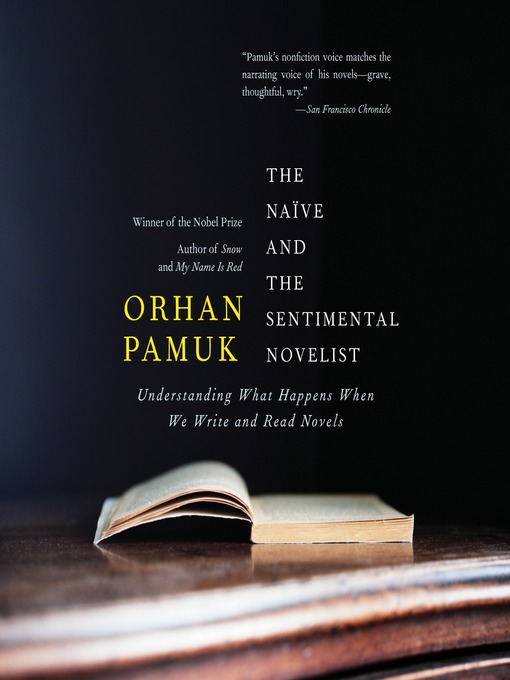
The Naive and the Sentimental Novelist
Understanding What Happens When We Write and Read Novels
کتاب های مرتبط
- اطلاعات
- نقد و بررسی
- دیدگاه کاربران
نقد و بررسی

October 4, 2010
Taking his title and inspiration from Schiller's "On Naive and Sentimental Poetry," Nobel Prize–winning Turkish novelist Pamuk (The Museum of Innocence) dissects what happens when we read a novel. Making a distinction between naïve novelists, "unaware" of the novel's artificiality, and "sentimental" novelists (and readers) at the opposite end, who are "reflective," Pamuk is most interested in the "secret center" of literary novels, which is the wisdom they impart. Pamuk brings to the table firsthand knowledge regarding the centrality of character in the novel and how the novelist actually becomes the hero in the very act of writing. Readers, in their own symbiotic act of imagination, also inhabit the hero's character. And through that sense of identification with the hero's decisions and choices, Pamuk says, we learn that we can influence events. Reading novels in his youth, he writes, "I felt a breathtaking sense of freedom and self-confidence." Based on Pamuk's Norton Lectures, the book has some inevitable repetition, but is a passionate amalgam of wonder and analysis.

Narrator John Lee's wonderful voice would be enough to enliven the most uninspired lecture, and in Pamuk's audiobook it is challenged to do just that. The text is an adaption of the Charles Eliot Norton Lectures delivered at Harvard by the Nobel-winning novelist Orhan Pamuk in 2009-10. The lecture series has featured some of the world's greatest writers since the 1920s, but in these reflections on "understanding what happens when we write and read novels," Pamuk offers only generalities, repetition, muddled arguments, and few insights. The lectures are refreshingly free of academic jargon, but the plain language doesn't make the narrative any less opaque. Only Lee's masterful delivery make them listenable. D.B. � AudioFile 2018, Portland, Maine

























دیدگاه کاربران